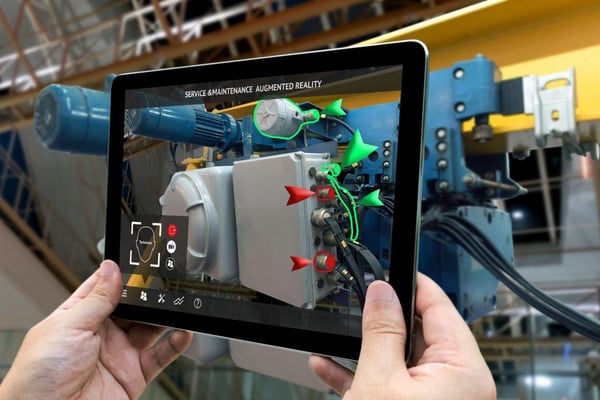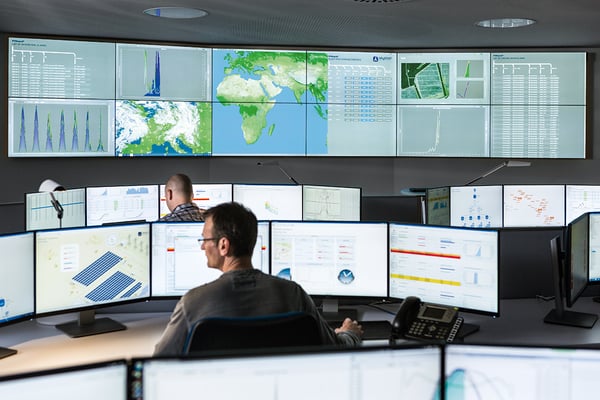There’s been a development in the oil and gas industry over the past years, especially since the huge drop in oil price back in 2014. Previously, the earnings were so high that the way of operating and the way of specifying the facilities and running the projects, was completed without a lot of focus on cost-efficient solutions. The drop in oil price changed this, and now, lean/agile/digitalisation methods are high on the agenda to achieve a more cost-effective and optimised business.
Many installations still suffer from high operational expenses from costly developments that were carried out during the peak in oil price between 2011-2012. During the decline of the oil price after 2014, there were less investments in new development projects. Reducing the amount of modifications and optimising maintenance tasks were key focus areas.
The oil and gas industry will still be important in the future and will be an important part of everyone’s lives in Norway, whether they are aware of this or not. The current trend is protesting against the oil and gas industry due to the negative environmental impact. It is especially the perception of the younger generation that this industry needs to be stopped.
A few key points to argument against this perception:
- 54% of the world’s energy consumption came from oil and gas in 2017 (global energy statistic yearbook, 2018). It is expected that in 2050 only 20% of the world’s energy supply will come from solar- or windpower. However, there will be about 2.2 billion more people on earth, meaning that oil and gas will still be important for energy production.
- There is a potential to have a more environmentally friendly oil & gas industry on a global basis. Norway have an average of 50% less emission compared to the global emission average. Additionally, Norway is only responsible for 2% of the oil production and 3% of the gas production in the entire world (BP Statistical review of World Energy, 2017). If Norway was to stop producing oil and gas, this would have zero impact on the total production in the world, as other countries would simply take over this production (Framtiden i våre hender, 2013).
- The Norwegian state’s revenue from the petroleum industry is estimated to be 286 billion NOK in 2019 (Norsk Petroleum, 2019).
This show us that it is still important to produce oil and gas in Norway in the future, and as one of the countries with the lowest emission rates, we need to take responsibility in the development of this industry in other countries as well, in order to help lower the global emission average per facility.
What factors will be important in the future? – how can we keep the oil and gas industry sustainable?
Most companies in the oil and gas industry have an ambition of optimising their operational strategy to achieve a more cost effective and environmentally friendly operation. To achieve this, they are putting huge investments into development of new technology and work processes to digitalise their assets and the way they work. Currently, the majority of the digitalisation initiatives are conceptual and quasi-implemented into the daily operation, but the long-term plan is to replace analogue tools and tasks with digital and automated equivalents.
 Augmented Reality (AdobeStock)
Augmented Reality (AdobeStock)
There is a desire to utilise digitalisation to achieve an optimised operation, especially at the management level. One of the main issues and the main obstacles that we need to overcome is to get the whole organisation on board for change. This is done by establishing a sound stakeholder management strategy, to ensure a total buy-in of the digitalisation initiatives to get a permanent and solid implementation of new tools and methods.
We also need the government to step up and take the lead to standardise and establish regulations and guidelines that ensure a uniform development in the industry. It is important to set requirements for robust solutions and seamless integration between systems for more flexibility to choose system providers and open up for more co-existence in e.g. multi-field control rooms. This could for instance be implemented in existing NORSOK standards. An open dialogue between the companies will also be an important factor for a sustainable development of the digitalisation initiatives.
How will this impact the way we operate?
The combination of readily available technology, proven concepts for integrated operation and remote operation, and a willingness to change the operational philosophy, will all have a great impact on how we will operate in the future. The benefits will be measured in cost-savings from optimised production, reduction in environmental impact, and reduced risk to human life.
Utilising more technology, automation, and integrated and remote operation, can also make you more vulnerable for downtime due to outages of network and critical equipment. This may increase the risks related to both unintentional incidents like failure of equipment or human-error, and it can also come from intentional attacks like cyber-attacks or sabotage.
 Image: Skytron
Image: Skytron
Recommendations for the future
A recurring issue is that the traditional development of a facility with a large offshore organisation is too costly and may be outdated. The CAPEX and the OPEX costs will drive the break-even threshold too far, and the risk will be very high budgeting for a long-term high oil-price for any such development project. The mindset and the willingness to change from traditional operation to new and more efficient ways of operating through digitised work methods needs to be developed. Technology and the practical feasibility are in place to achieve this.
The key for sustainability would be to fully adopt the new digitalisation tools and adjust the strategy towards a more automated/integrated- and remote operation. This will provide better leverage towards fluctuations in oil price and will likely present a much lower break-even threshold. To succeed with this it is important to develop routines and procedures to handle all risk elements that become relevant in such an adjustment of the operational aspect. The industry should standardise and build a governing framework to establish a reputable concept and trustworthy process for remote operation.